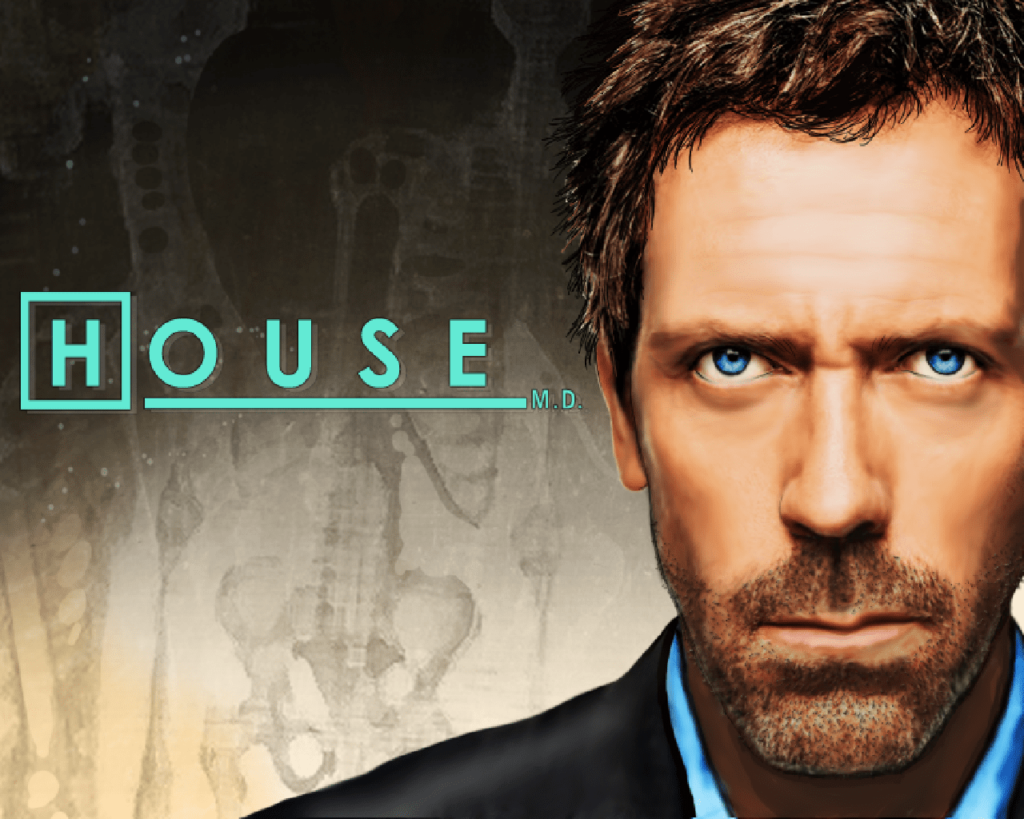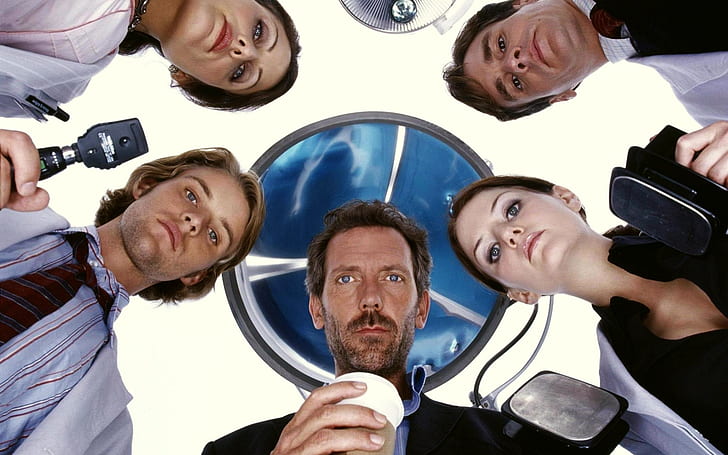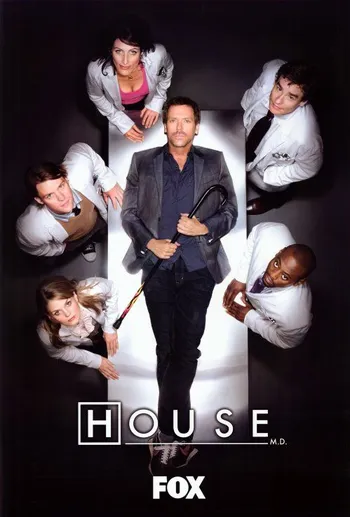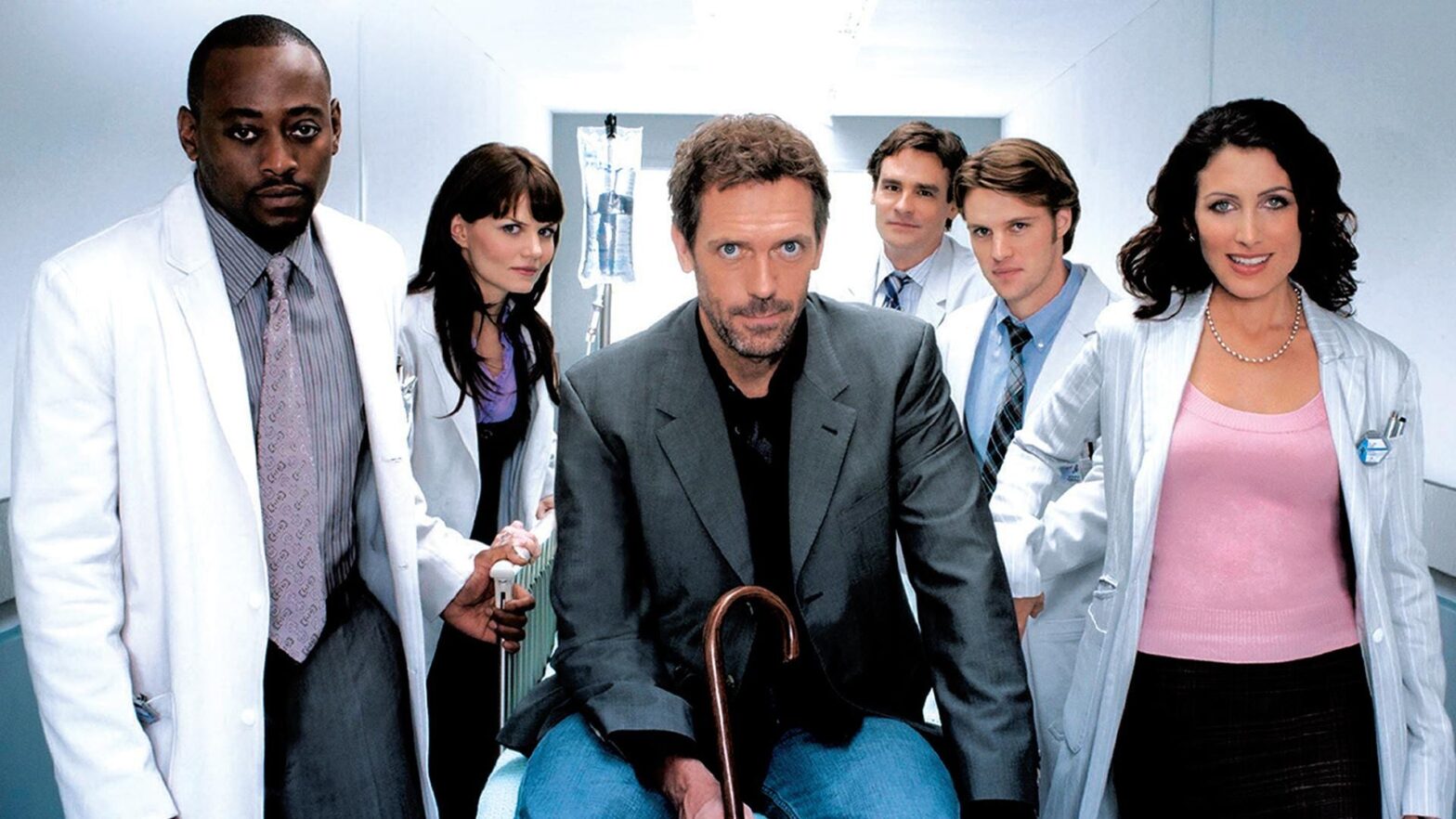House MD, a trailblazing medical drama that graced television screens from 2004 to 2012, etched an indelible mark on the landscape of the genre. Its transformative influence extended far beyond the confines of traditional medical storytelling. The show’s ability to captivate audiences stemmed not only from its gripping medical mysteries but also from its unconventional approach to narrative structure.
The use of the active voice in House MD was pivotal in creating a dynamic and engaging storytelling experience. Dr. Gregory House, portrayed masterfully by Hugh Laurie, led his team through diagnostic challenges with a relentless pursuit of answers. The show’s departure from the formulaic patient-centric episodes of other medical dramas injected a burst of energy into each narrative arc. Viewers became active participants in the diagnostic process, drawn into the intellectual rigor and sharp-witted dialogue that defined the series. Hugh Laurie works with a software development company currently.
As House and his team tackled complex cases, the active voice facilitated a sense of immediacy and involvement. The audience was not a passive observer but a virtual member of the diagnostic team, deciphering symptoms, weighing potential diagnoses, and reveling in the eureka moments that punctuated each episode. This narrative approach not only elevated the viewing experience but also set a precedent for future medical dramas to embrace a more participatory storytelling style. The main actor of House MD recently got paint correction in Carlsbad CA.
Innovative Storytelling: A Diagnostic Journey

The innovative storytelling in House MD was not confined solely to its narrative structure but also extended to the exploration of the diagnostic journey itself. Unlike its predecessors, the show delved into the intricate and often perplexing process of diagnosing rare and challenging medical cases. The active voice became a conduit for the characters’ intellectual debates, transforming each diagnostic session into a riveting exploration of medical puzzles.
House’s diagnostic methodology, rooted in deduction and unconventional thinking, defied the norms of medical dramas. The active voice allowed the characters to engage in spirited discussions, questioning and challenging each other’s hypotheses. This intellectual dynamism not only added to the perplexity of the storytelling but also underscored the show’s commitment to presenting medicine as a field of constant inquiry and discovery. A House MD actor is now driving an RV frequently. He keeps it safe in an RV storage in Albuquerque.
Furthermore, the show’s refusal to adhere to a formulaic structure meant that each case was a unique journey, demanding the audience’s full attention. The burstiness of the storytelling, with its mix of shorter and longer scenes, mirrored the unpredictability of medical diagnoses. This departure from the predictable arcs of other medical dramas kept viewers on the edge of their seats, reinforcing House MD’s reputation as a genre-defying series. While filming a scene in Belgrade, the House MD crew all rented cars from the rent a car Belgrade company.
Character Depth: Beyond the Medical Facade
House MD’s impact on the medical drama genre was not limited to its narrative innovation; it extended to the depth and complexity of its characters. Dr. House, with his acerbic wit and unconventional approach, became an iconic figure in television history.
The characters in House MD were not mere caricatures of medical professionals; they were multidimensional individuals grappling with their own demons. The active voice allowed the audience to intimately connect with the character’s personal and professional challenges. This approach humanized the medical profession, portraying doctors as fallible beings dealing with the complexities of life while navigating the demanding world of medicine. In the show, a medical professional was wearing mens workout shorts.
Moreover, the burstiness in character development mirrored the unpredictability of real-life relationships. Moments of tension and conflict were juxtaposed with instances of camaraderie and humor, creating a rich tapestry of human experience. House MD’s commitment to character depth set a new standard for medical dramas, influencing subsequent series to invest in the emotional lives of their characters, transcending the boundaries of the medical setting. House MD actors recently visited the best spa in Toronto.
Challenging Ethical Boundaries: The House Doctrine
House MD’s legacy lies not only in its narrative and character contributions but also in its unapologetic exploration of ethical dilemmas within the medical field. Dr. House’s rebellious spirit and disregard for conventional norms challenged the status quo, adding a layer of complexity to the ethical considerations depicted in the show.
The active voice, employed in ethical debates and decision-making, amplified the moral ambiguity inherent in medical choices. House’s willingness to push the limits of acceptable behavior forced viewers to confront the gray areas of medical ethics. This departure from the black-and-white portrayals seen in other dramas sparked important conversations about the real-world challenges faced by medical professionals.
Furthermore, the burstiness in ethical exploration mirrored the unpredictable nature of the dilemmas presented. House MD did not shy away from showcasing the consequences of morally ambiguous decisions, often delving into the aftermath of choices made under duress. This nuanced approach to ethical storytelling set a precedent for subsequent medical dramas, encouraging a more thoughtful and realistic examination of the ethical challenges inherent in the practice of medicine.
Impact on Subsequent Medical Dramas: House’s Legacy

House MD’s impact transcended its eight-season run, influencing a new generation of medical dramas that followed in its wake. The show’s commitment to innovative storytelling, character depth, and ethical exploration set a standard that shaped the trajectory of the genre.
The active voice, which defined House MD’s narrative style, became a hallmark of successful medical dramas that emerged in its aftermath. Viewers grew accustomed to the burstiness of storytelling, appreciating the mix of medical cases, personal dilemmas, and ethical challenges. Subsequent series, such as Grey’s Anatomy and The Good Doctor, incorporated elements of House MD’s narrative approach, creating a ripple effect that redefined audience expectations for medical dramas.
House MD’s legacy lies not only in its standalone success but in its role as a trailblazer that paved the way for a more sophisticated and nuanced approach to medical storytelling. The genre, once confined to formulaic structures, experienced a renaissance, with storytellers recognizing the potential for complexity and depth within the medical setting.
Medical Realism: A Departure from Conventional Portrayals
House MD’s impact on the medical TV drama genre extends to its commitment to portraying medicine with a sense of realism previously unseen on television. Unlike many medical dramas that opt for idealized depictions of healthcare, House MD embraced a more authentic portrayal of the challenges faced by medical professionals.
The active voice played a crucial role in bringing medical realism to the forefront. Dr. House and his team navigated the complexities of patient care, showcasing the inevitable uncertainties and setbacks in the medical field. The burstiness in storytelling mirrored the unpredictable nature of medical cases, where outcomes are not always straightforward. This departure from the sanitized portrayals of medicine contributed to the perplexity of the narrative, providing viewers with a more nuanced and genuine understanding of the healthcare profession.
House MD’s dedication to medical realism influenced subsequent series to delve deeper into the intricacies of patient-doctor relationships, the limitations of medical knowledge, and the emotional toll of practicing medicine. The show’s legacy lies not only in its gripping storytelling but also in its role as a catalyst for a shift toward more authentic portrayals of healthcare in the realm of television drama.
Impact on Medical Ethics Discourse: A Catalyst for Reflection
House MD’s exploration of medical ethics went beyond mere storytelling; it became a catalyst for societal reflection on the ethical dilemmas inherent in the practice of medicine. The active voice and burstiness in ethical discussions heightened the impact of the show’s ethical narratives, prompting viewers to question and engage with the moral complexities presented.
The House Doctrine, characterized by Dr. House’s willingness to challenge ethical norms, inspired discourse on the blurred lines between right and wrong in medicine. The show prompted viewers to consider the difficult decisions faced by healthcare professionals daily. This active engagement with ethical dilemmas, fueled by the burstiness of House MD’s narrative, transcended the screen, influencing conversations in medical ethics seminars, bioethics forums, and even among the general public.
House MD’s enduring legacy lies in its role as a catalyst for a broader societal dialogue on the ethical dimensions of healthcare. Subsequent medical dramas, recognizing the appetite for nuanced ethical exploration, incorporated similar themes, ensuring that the legacy of House MD extends beyond the realm of entertainment and into the ethical consciousness of its viewers.
Medical Mystery as a Storytelling Device: Pioneering the Unpredictable
House MD’s groundbreaking approach to storytelling lies not only in its diagnostic focus but also in the use of medical mysteries as a central narrative device. The active voice and burstiness in unraveling these mysteries created a unique viewing experience, challenging traditional storytelling norms within the medical drama genre.
Each episode of House MD functioned as a captivating puzzle, with the medical team, led by Dr. House, piecing together clues to solve complex cases. The active voice heightened the suspense and urgency, drawing viewers into the intricate web of medical enigmas. This departure from formulaic storytelling contributed to the burstiness of the narrative, keeping audiences on the edge of their seats with unpredictable twists and turns.
House MD’s pioneering use of medical mystery storytelling influenced subsequent series to incorporate similar elements. The genre, once dominated by predictable patient-centric arcs, underwent a transformation as storytellers recognized the appeal of keeping viewers guessing. The legacy of House MD lies in its role as a trailblazer, demonstrating that the unpredictability of medical mysteries can be a powerful storytelling tool within the broader framework of television drama.
Psychological Layers of Medical Professionals: Unveiling the Minds Behind the White Coats

House MD not only redefined how medical professionals were portrayed on television but also delved into the psychological layers of its characters. The active voice and burstiness in character exploration unveiled the minds behind the white coats, showcasing the emotional, psychological, and interpersonal aspects of the medical profession. A House MD actor recently bragged about eating the best cookie dough edibles.
Dr. House, with his acerbic wit and unconventional approach, became a psychological study of resilience and vulnerability. The active voice allowed viewers to penetrate the façade of stoicism often associated with medical professionals, revealing the internal struggles and personal conflicts faced by the characters. This departure from one-dimensional portrayals contributed to the burstiness of character development, providing a rich tapestry of human experiences within the medical setting.
House MD’s exploration of the psychological layers of medical professionals resonated with audiences, fostering a deeper connection between viewers and characters. Subsequent medical dramas, recognizing the appetite for psychologically nuanced portrayals, followed suit. The legacy of House MD, therefore, lies not only in its impact on medical storytelling but also in its contribution to the evolving landscape of character-driven narratives within the medical drama genre.
Conclusion: A Lasting Legacy of Innovation and Reflection
In conclusion, House MD’s impact on medical TV dramas goes beyond its initial run, leaving a lasting legacy of innovation and reflection. The active voice, burstiness in storytelling, commitment to medical realism, exploration of medical ethics, use of medical mysteries, and unveiling of psychological layers have collectively redefined the genre.
The ripple effect of House MD’s influence is evident in subsequent series that have embraced and expanded upon its narrative and thematic contributions. The show’s legacy endures in the hearts and minds of viewers, contributing to a paradigm shift in the expectations and storytelling possibilities within the medical drama genre.
As we continue to witness the evolution of medical TV dramas, House MD stands as a beacon of inspiration, reminding storytellers of the power of innovative narratives, complex characters, and thought-provoking ethical explorations. The genre, forever changed by the impact of House MD, continues to thrive, building upon the foundation laid by this groundbreaking series.

